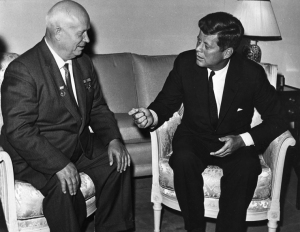
Published previously at WGBHNews.org.
The political press today is engorged with analysis that attempts to explain why House Majority Leader Eric Cantor lost the Republican primary in his Virginia district to a Tea Party challenger on Tuesday. But given that the pundits were as surprised as everyone else, there is no particular reason to think they are capable of telling us why it happened.
Nearly a month ago, though, Jenna Portnoy and Robert Costa of The Washington Post saw it coming. In an article headlined “Eric Cantor’s tea party opponent in Va. primary may be picking up momentum,” the two wrote that Cantor’s opponent, David Brat, had energized the right-wing base of the party. Cantor, Brat’s supporters believed, had been insufficiently hardline on issues such as immigration reform, the debt ceiling and the Affordable Care Act.
Weeks before the voting, Portnoy and Costa also put their finger on a Cantor tactic that seems to have backfired: going after Brat so hard that he improved his unknown opponent’s name recognition and gave him legitimacy. They quote Brat as saying, “I’m a rookie, he’s never gone negative, and he’s putting my face and name on Fox News, which is unheard of. If they’re doing that, that means their internal polling shows that I’m not at zero. I’m a risk of some sort.”
Portnoy is a local reporter for the Post, having previously covered New Jersey Gov. Chris Christie for The Star-Ledger of Newark. I’m sure she’s a fine reporter. What the Cantor story tells me, though, is that the Post’s move to poach Costa from National Review last November is paying off. As Joe Coscarelli wrote in New York magazine, Costa — who is not yet 30, and who rose to prominence during last year’s debt-ceiling debacle — is rare among conservative journalists in that he sees himself as a reporter first, trusted by and well-plugged-in among all factions.
If you want to know why Cantor lost, don’t bother with the Wednesday morning quarterbacking taking place elsewhere. Instead, go back and read what Portnoy and Costa wrote weeks ago.
Photo (cc) by Gage Skidmore and published under a Creative Commons license. Some rights reserved.
